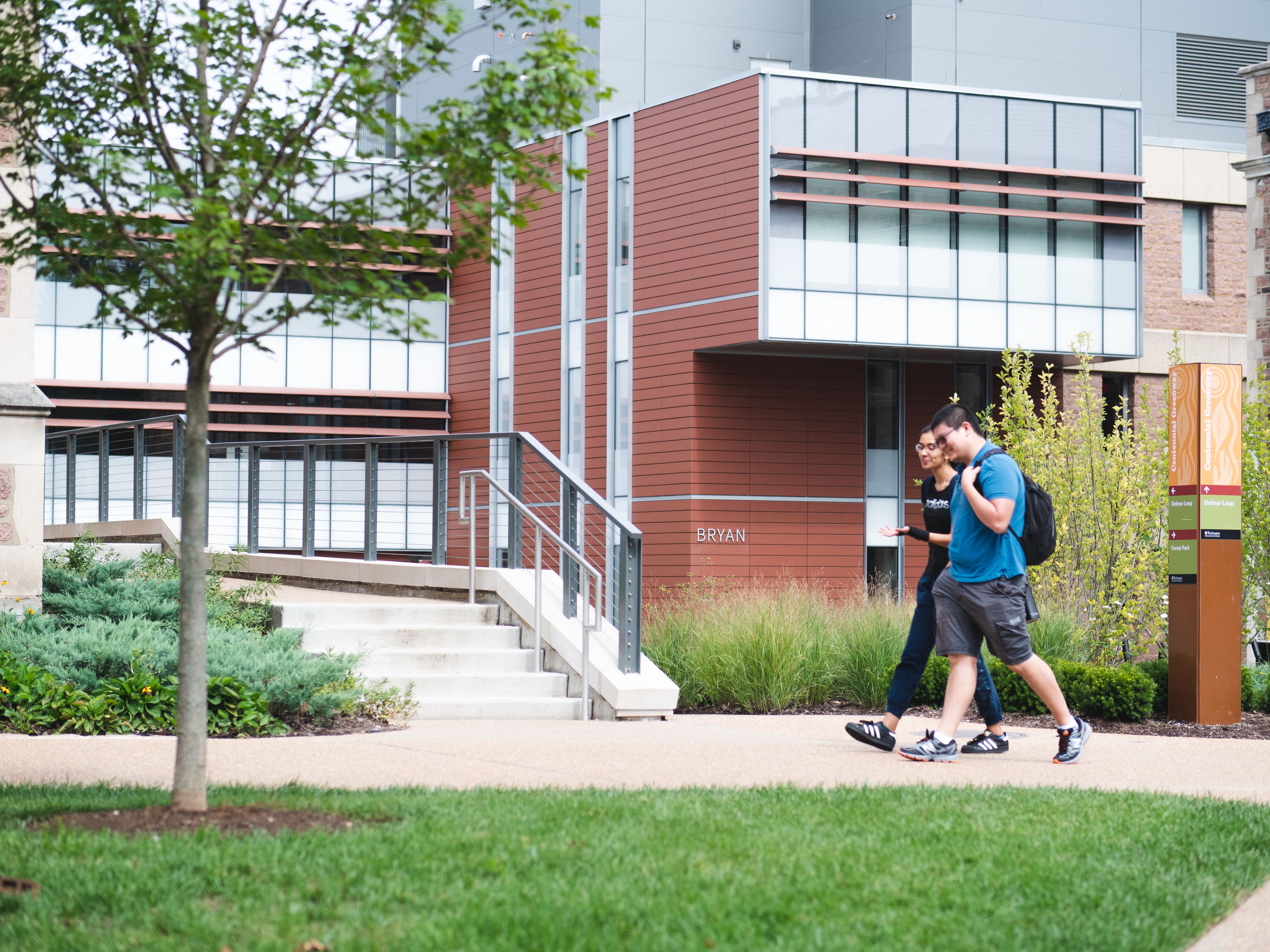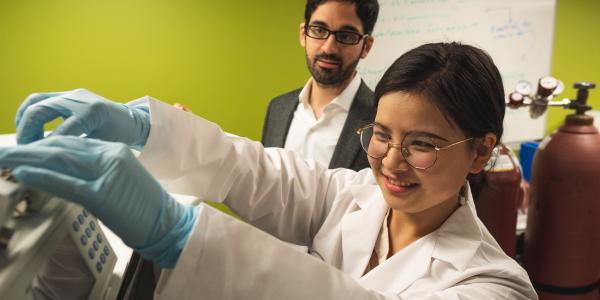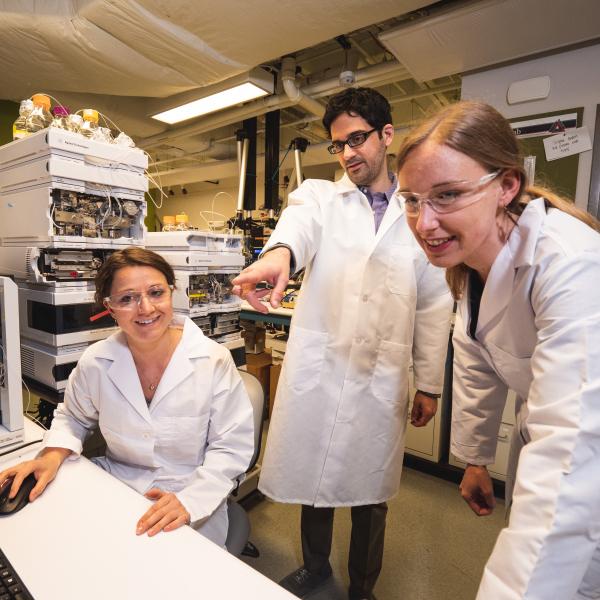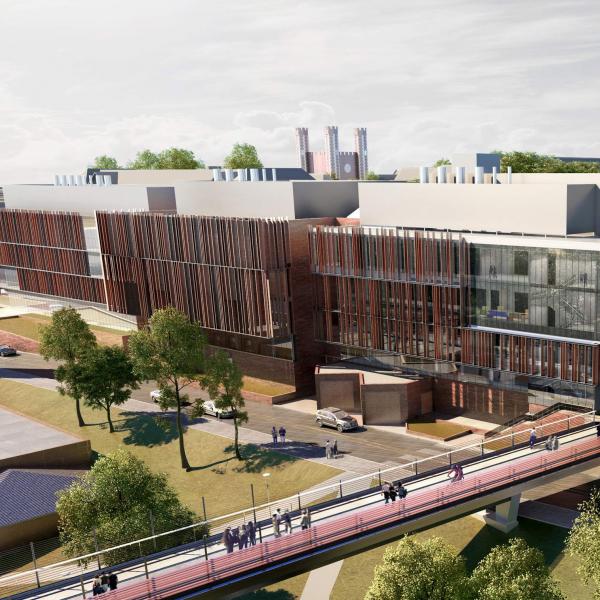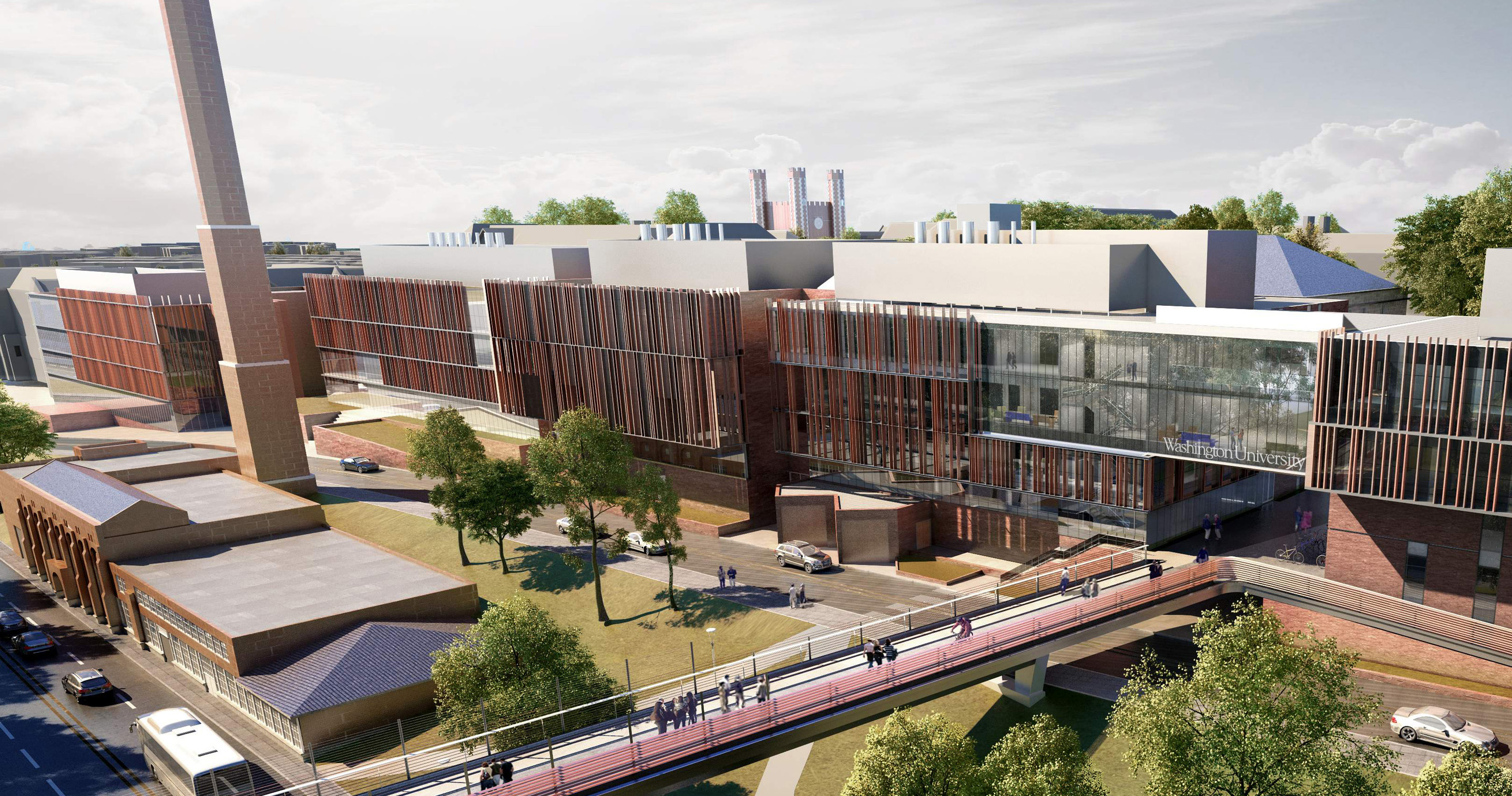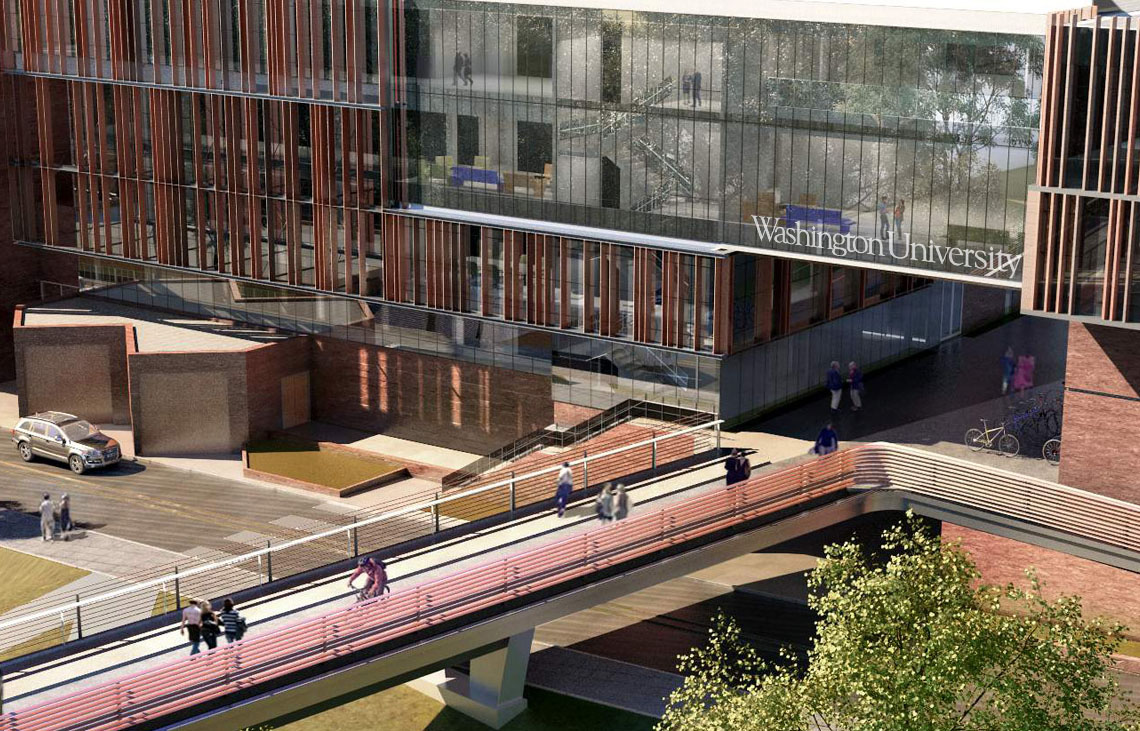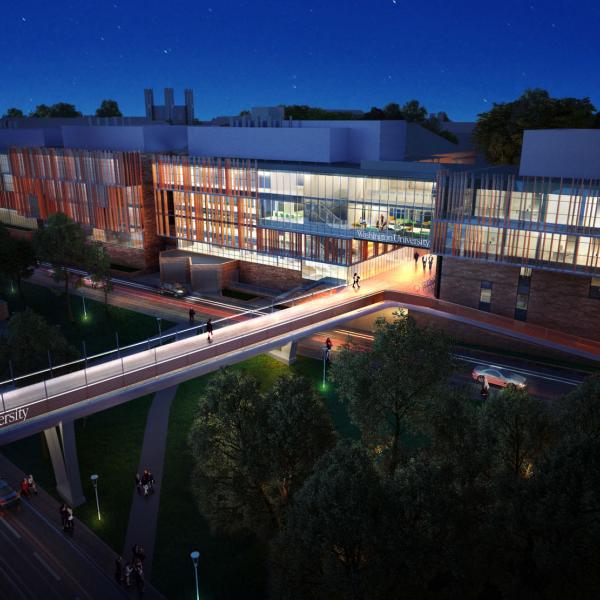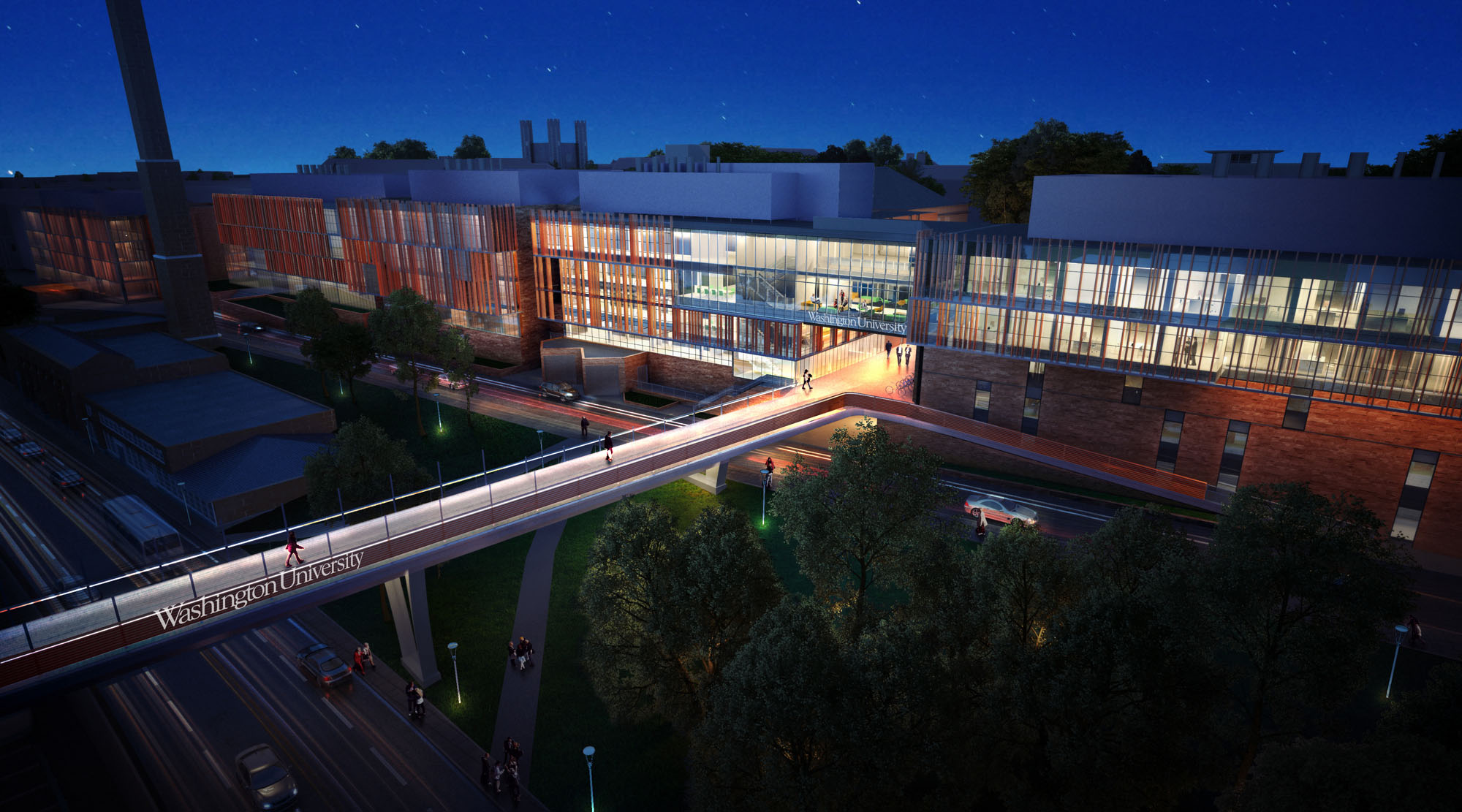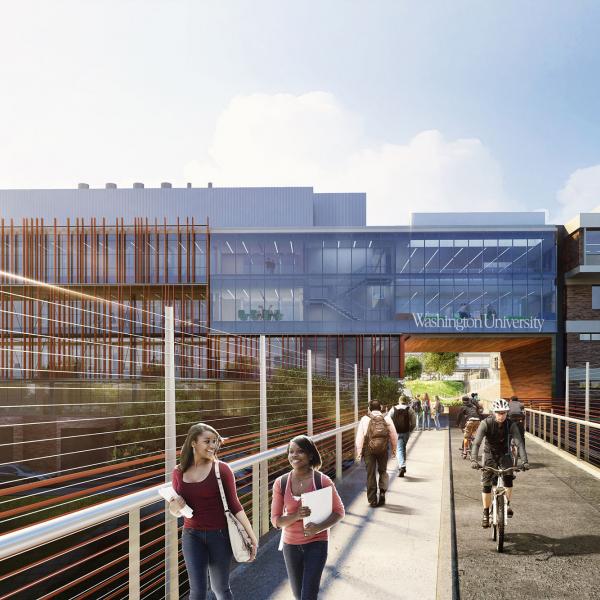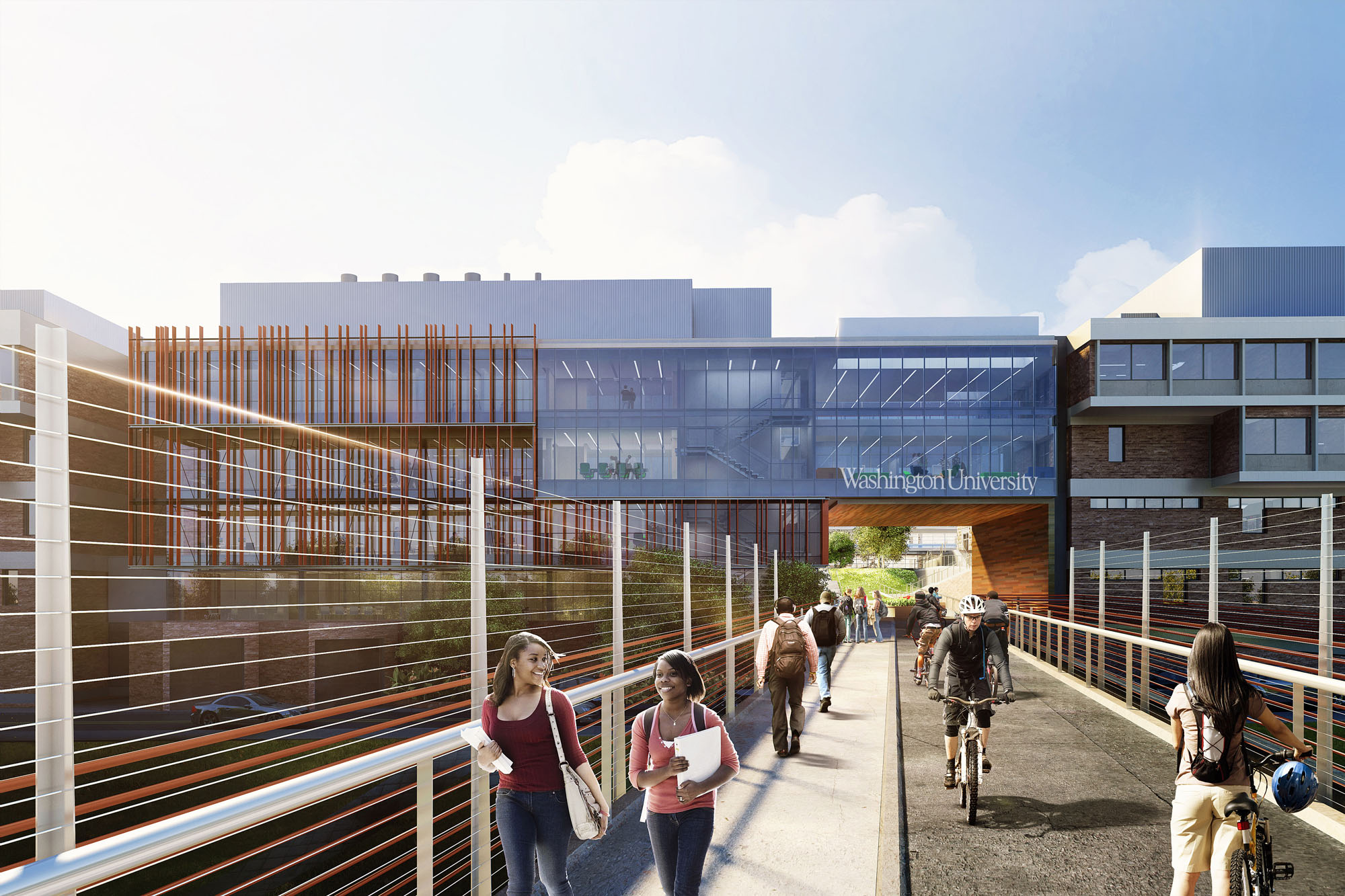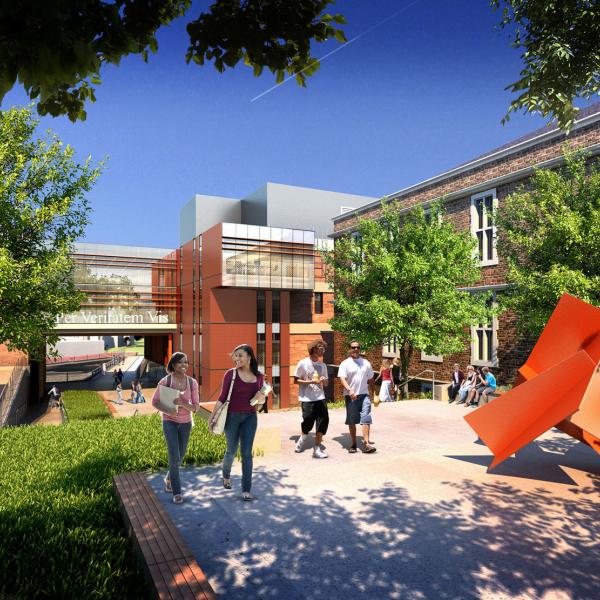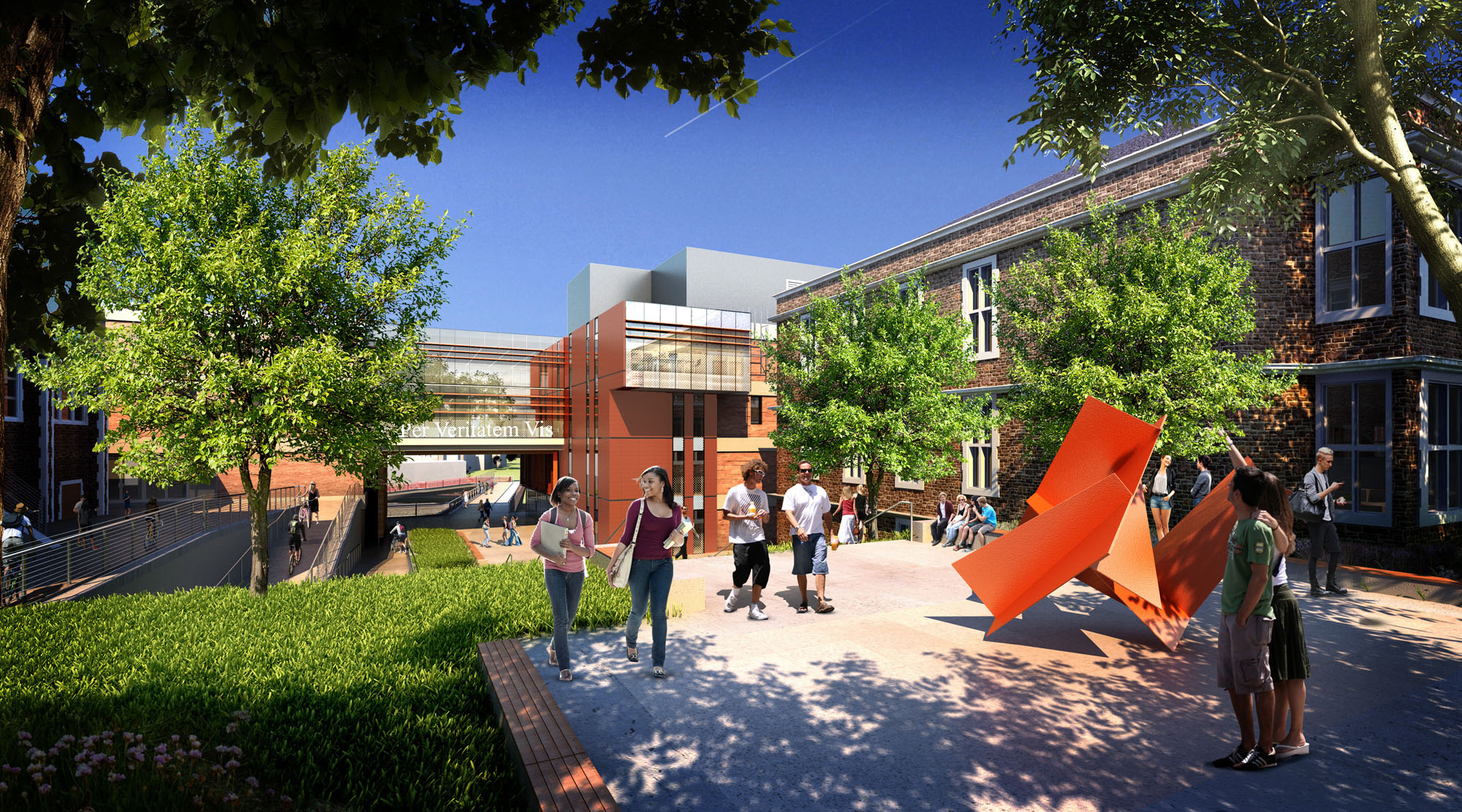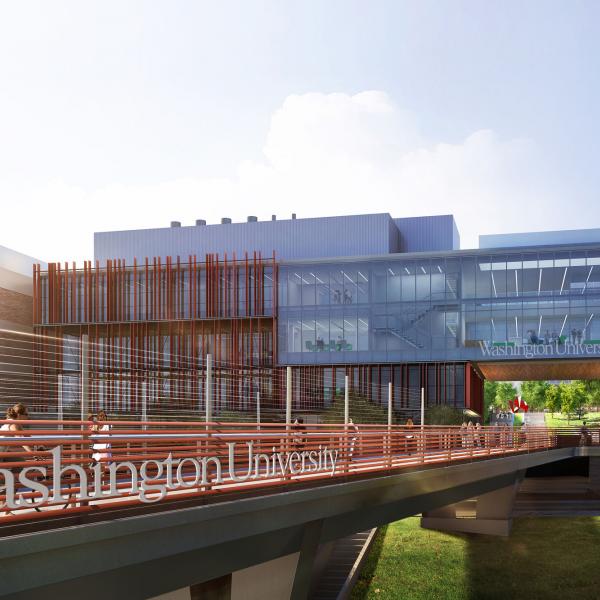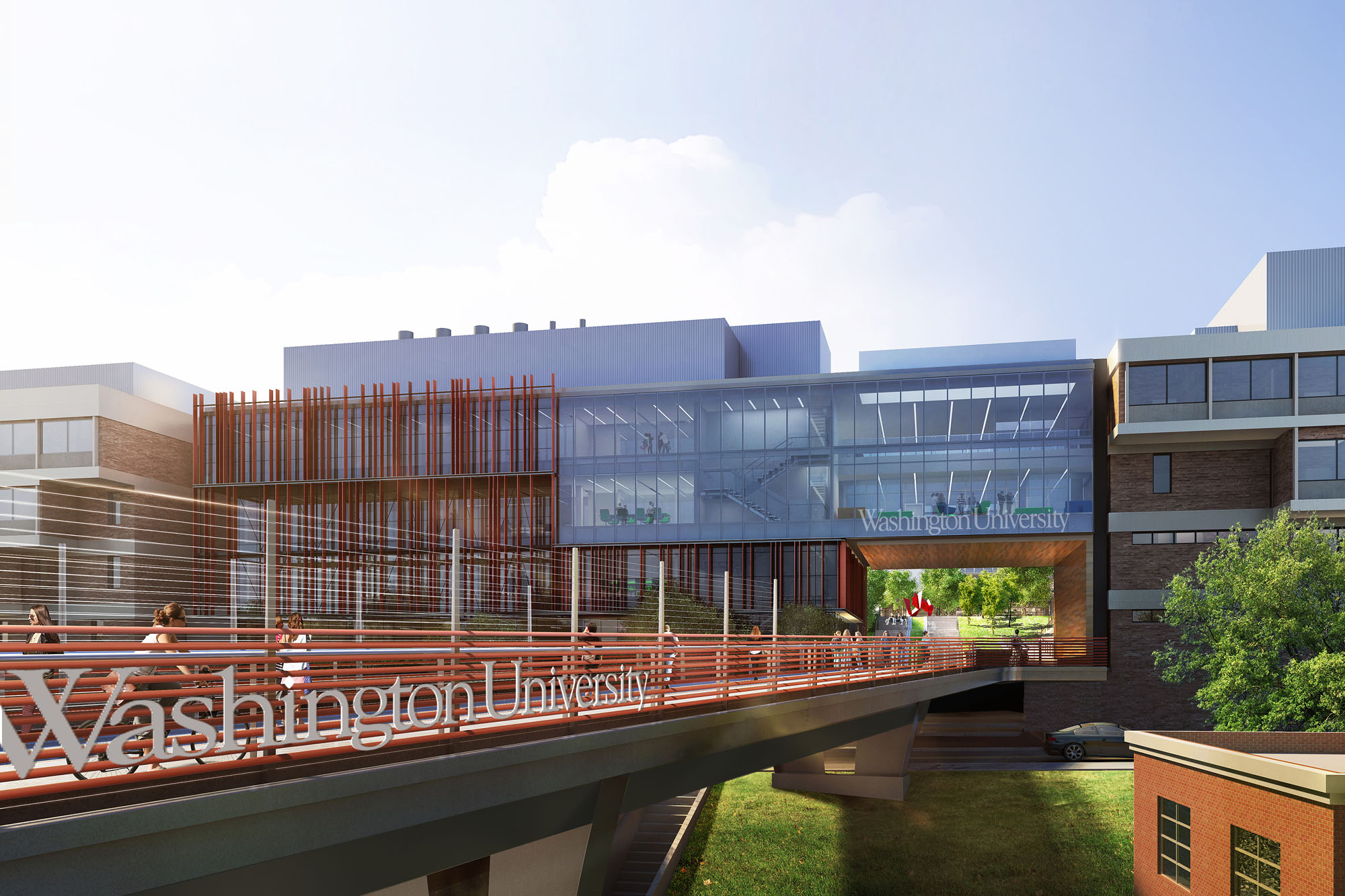Investing in the Future to Continue a Tradition of Scientific Excellence
The Driving Discovery initiative created world class facilities, provided ongoing support for dynamic faculty, and continues to attract outstanding students.
To train the next generation of scientists and compete for external research funds, we knew we needed to recruit talented new faculty and graduate students. We also knew growth would require space and equipment. Our science infrastructure must be able to support the demands of today’s research technology.
Driving Discovery was established to usher in a new era of scientific discovery in Arts & Sciences at Washington University. The initiative allowed us to fund a renovation of Bryan Hall, replacing outdated facilities with state-of-the-art laboratories, teaching areas, and collaborative spaces. It also provided support for faculty members who are launching exciting research programs, expanding course offerings, and creating new research opportunities for students. The increased resources for graduate fellowships and undergraduate scholarships has been critical to continuing our tradition of attracting outstanding students.
